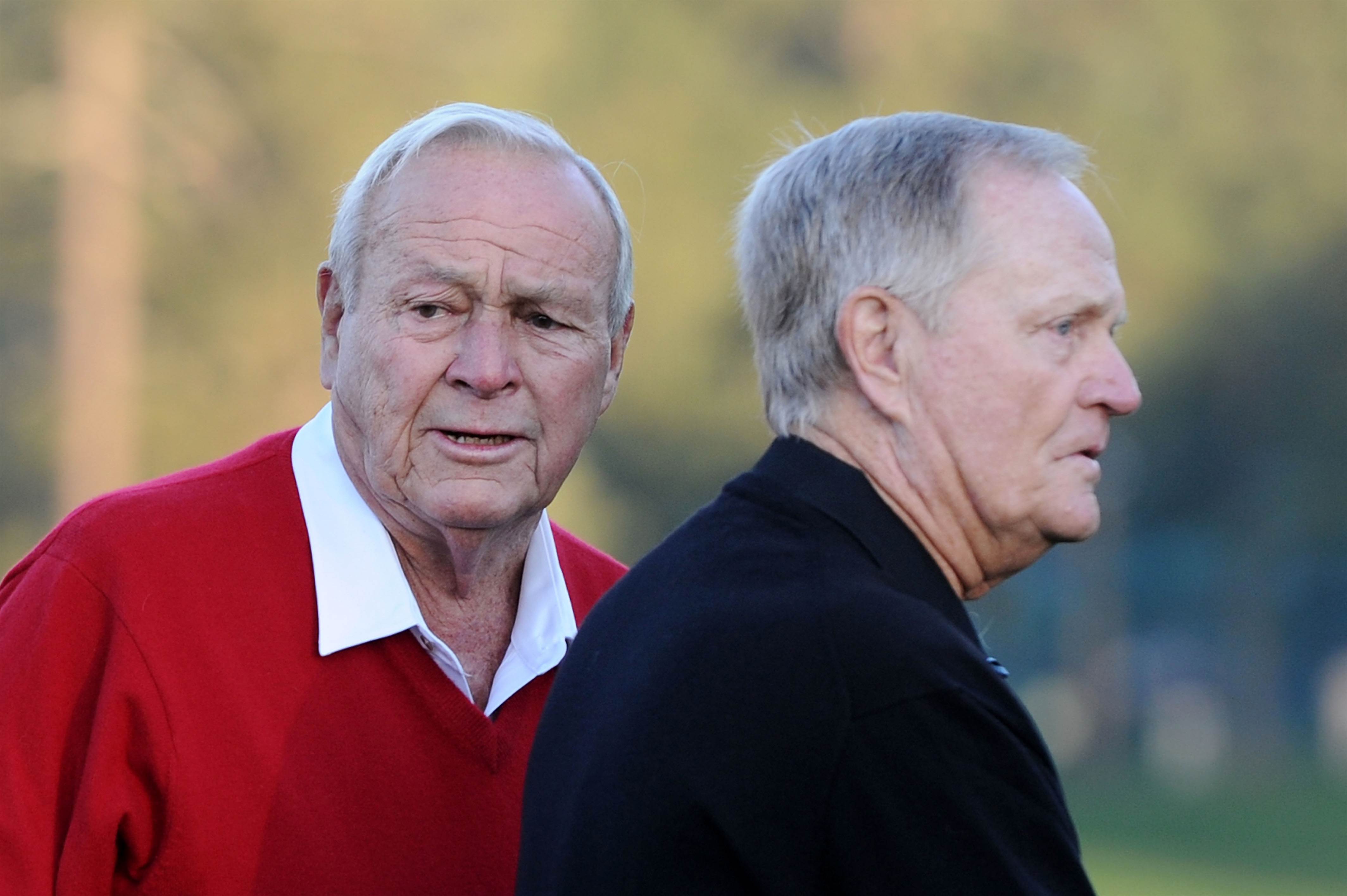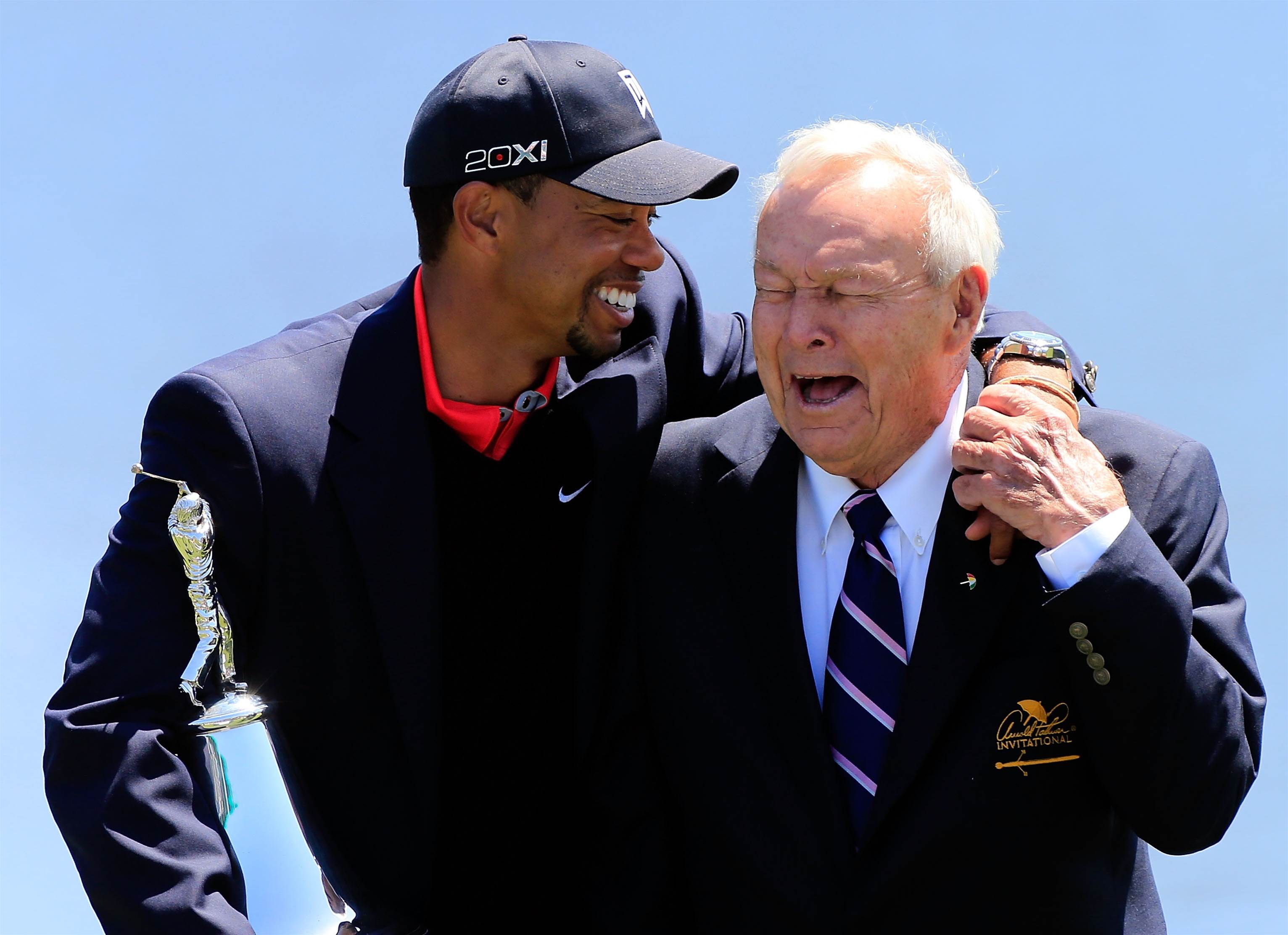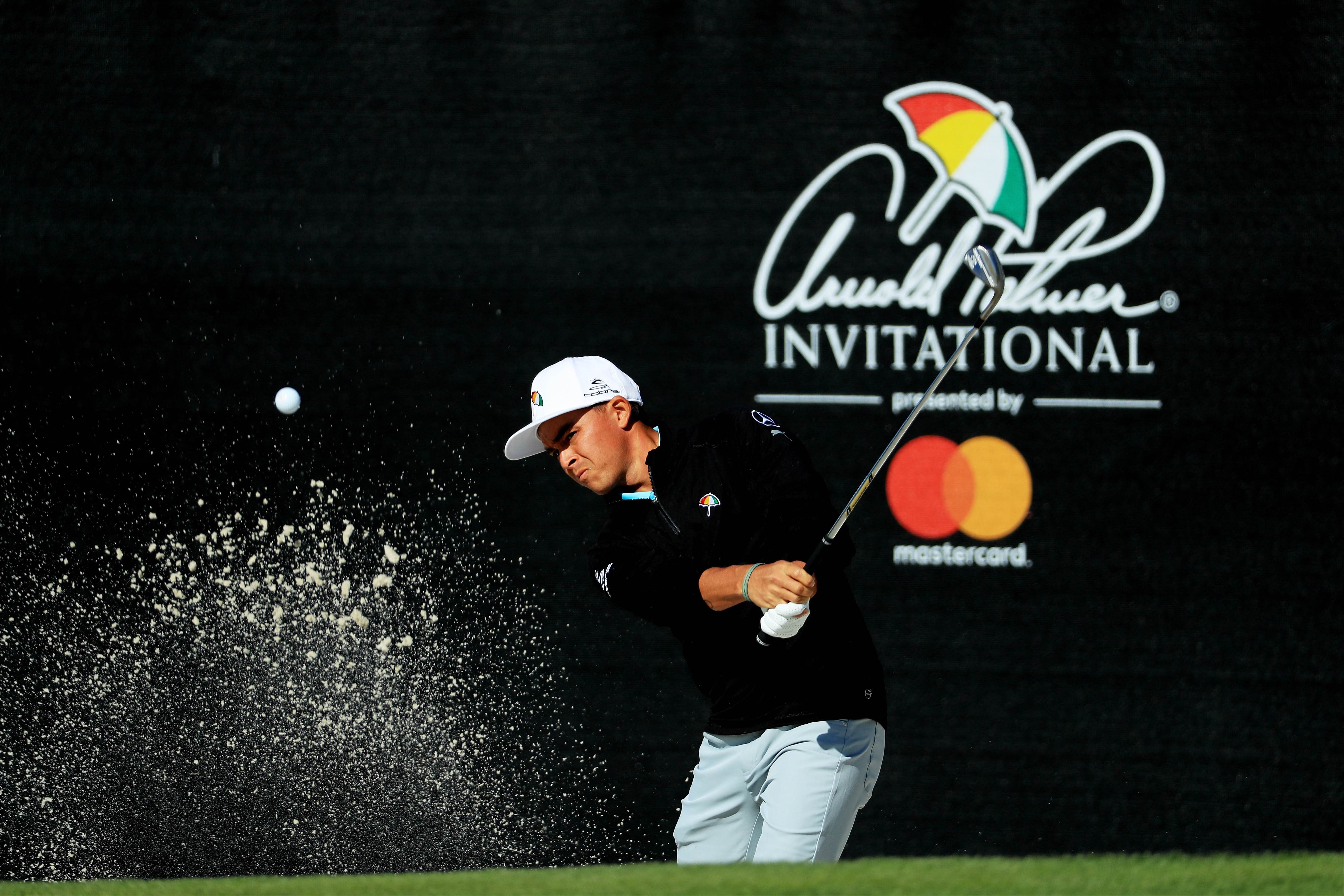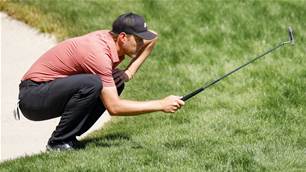The professional game wouldn’t be where it is without Arnold Palmer. The beloved American revolutionised the money-making ability of golf pros. So while the modern player readily pays tribute to ‘The King’, do they have an obligation to play tournaments named in his and other legends’ honour, like this week’s Arnold Palmer Invitational?
Since breaking away from the PGA of America in 1968, the PGA Tour has operated with the interests of its members at heart ... Offering tournaments, seeking sponsors to provide prizemoney, while also creating a pension for retired players and raising enormous amounts of money for charity amongst various other duties.
And the Tour has been quick to reward those who have helped build its brand and ensure it is the top tournament circuit in the world, with Jack Nicklaus, Arnold Palmer and Tiger Woods among members to become tournament hosts.
Although each of the aforementioned are more than deserving of either the eponymous tournament in Palmer’s case or otherwise in Nicklaus and Woods’ case, the issue is now whether the current players are obligated to tee it up in their events as a sign of respect.

Each and every Tour player is grateful to Woods for the boom of sponsorship and prizemoney the 14-time major champion caused with his transcending career, but his various attempts at hosting tournaments have delivered mixed results.
For his part, Nicklaus gets what makes tournament players tick. ‘The Golden Bear’ puts on a premier event (The Memorial), on a quality golf course (Muirfield Village) in his home town, with every little detail thought of and a spot on the schedule that makes it a ‘must play’ for the majority of those eligible.
But Palmer’s event has started to face challenges since Arnie’s death in late 2016.
The Arnold Palmer Invitational, as it became known in 2007, was always a tournament circled on the calendar for every top player. The chance to tee it up at Arnold’s Florida home base and shake hands with golf’s most charismatic man by the 18th green, luring one and all to Bay Hill.
Since Palmer passed away however, the tournament’s place in what became a nearly non-existent ‘Florida Swing’ in recent years, to a now jam packed schedule full of big events, means players must decide if his memory is enough to drop another tournament they typically play.
“I’m in a stretch of playing five out of six right now. I’ve played Bay Hill, I want to say seven years in a row, and since I moved down here (Florida) two years ago, I switched them out, and now I’m playing here (Honda Classic) instead of Bay Hill, and that’s tough since I play Bay Hill well, as well,” Gary Woodland said at last week’s Honda Classic.
Woodland is certainly not alone.
Tiger and Rory McIlroy both chose to skip last week’s Tour stop that is effectively a home game for both players to instead play at Bay Hill (before Tiger’s injury withdrawal), where Woods is an eight-time winner and McIlroy is the defending champion, primarily due to the move of the PGA Tour’s number one event, The Players Championship, back to March to accommodate the US PGA’s own relocation to May. Whereas Queenslander Adam Scott, despite a strong history at Bay Hill and respect for the history of the game, has decided to skip Bay Hill in favour of the Honda last week (a tournament he has previously won) and to be better prepared for the upcoming The Players and The Masters.

Although scheduling challenges are nothing new in the world of golf, when it comes to a legend of the game like Palmer – who shook more hands, signed more autographs and promoted the game more than perhaps any person in the history of sport – things become complicated.
The Tour has attempted to bolster Arnie’s event by bestowing upon it “enhanced status” in the final year of Palmer’s life. The elevated standing on the schedule for the 120-man invitational field has seen its total prize purse raise from US$6,300,000 in 2016 to a whopping US$9,100,000 this year, while the winner is also awarded a three-year Tour exemption, rather than the typical two.
The increase in potential income and extended job security is good in theory, but are factors appealing to lower ranked players with uncertain standing on the world’s biggest stage and won’t achieve the end result of the game’s biggest name’s playing each year.
Even while Palmer was alive, some players felt it best to stay home and rest in the lead up to The Masters and other big events.
“I told a lot of people it was one of the hardest things I had to do was come up here, have lunch with Arnold, and tell him that I wasn’t going to be able to play,” Rickie Fowler said of missing the event in 2016. “The kind of look he gave me when I told him I wasn’t going to be able to be here was, it was hard to stick to what the plan was and what I was trying to do with the schedule.”
Fowler is one of the modern players most regularly likened to Palmer for his tireless work with fans and charity – and having developed a close relationship with the seven-time major winner, still saw it best to remove the event from his schedule at one time.

Fowler hasn’t missed the event in the three years since, and has arguably done more than any other player to honour the great man’s legacy at the tournament. But his case is one of many high-profile players worth examining as to whether issues faced by tournament’s like the Arnold Palmer Invitational are to be put on the players, or the PGA Tour itself.
“I think Arnold meant an awful lot to every one of us,” McIlroy said of Palmer in 2017. “Anyone that is involved with the game of golf in any capacity, especially the ones that get paid to play it or get paid to write about it or get paid to whatever, I mean, he was a massive part of that. And I think we all owe him a massive debt of gratitude for what he did for the game.”
The Northern Irishman defends his winner’s cardigan – now draped on the shoulders of the victor since Palmer’s passing to replicate his inimitable style – this week. But McIlroy himself, despite his comments outlining his clear admiration for Palmer, had never played the event prior to 2015.
Of the long list of other big name players whose decision whether to play a tournament or not almost makes headline news, Phil Mickelson, the 1997 champion, will tee it up at Arnie’s place for the first time since 2013 this week, with the unconscionable potential flow on being that he will miss The Players instead.
Meanwhile, Jordan Spieth, another of the Tour’s reputed ‘good guys’ has never played Palmer’s event in his career.
So where does the buck stop when it comes to honouring the legacy of a man the players and their Tour owe so much towards?
Should players take a leaf from Palmer’s own day and play more than the minimum events to pay tribute to he and others like Nicklaus, while also honouring their own sponsors’ tournaments and hometown crowds?
Or does the Tour have a responsibility to preserve events like the Arnold Palmer Invitational and other significant tournaments on its schedule by reducing the number of stops on the circuit, thinking beyond dollars and cents and taking the pressure of its players to be everywhere men?
The final option appears the most sound from all perspectives, but as Arnie said himself, “Golf is deceptively simple and endlessly complicated…”
Related Articles

Scottie Scheffler joins Tiger Woods in rarefied air

Davis in the mix at Arnold Palmer Invitational













